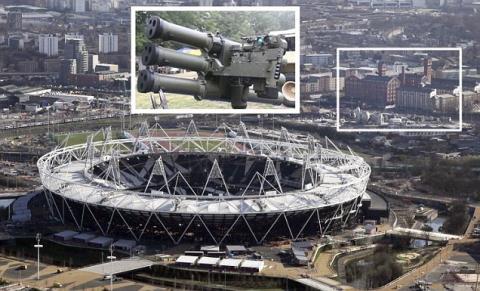The London Olympics and the science fiction of security

Graham Pike, Professor of Forensic Cognition, writes: July 2005, Sebastian Coe and David Beckham are hugging ecstatically in Singapore, crowds are cheering in Trafalgar Square, Tony Blair is looking smug and President Chirac downcast; the 2012 Olympic Games are coming to London! Across the land athletes are planning, shares in British construction companies are soaring and I absolutely guarantee that the heads of any public agency charged with ‘security’ are reaching for the aspirin. Over 10,000 athletes, over one million visitors, 70,000 volunteer workers and one hundred and fifty heads of state, including from countries quite likely to be at war during the games… all in the capital city of a country still waging a ‘war against terror’. A security headache to say the least.
Being British, the glee of winning the Olympic bid is soon replaced by fears concerning the two great banes of UK life, the traffic and the weather. Comedic careers are made predicting what our opening ceremony will be and radio chat shows worry by how many billions the budget will be exceeded. But above, more accurately beneath, the moaning and predicted embarrassment, seeing the words ‘London Olympics’ in the same sentence as the word ‘security’ strikes a real note of dread into preparations.
Nearly one year later, May 2006, I am invited to (and attend) a conference being held by the London Technology Network on ‘Future technology initiatives for the Olympics’. Some of the presentations are about innovative ways of televising sport, but a great deal concern security. During the day the message that emerges is that by 2012 we will have developed technologies that will allow a computer to automatically recognise faces, track an individual across the city, to spot criminal activity and to determine whether someone is a terrorist by their movements. The opinion of the audience is divided between the gung-ho technophiles and those of us who have heard all this before and don’t believe a word of it. The Social Scientists, particularly psychologists, in the audience point out the unlikelihood of a machine being able to outperform human cognition by 2012, but the general feeling is that by the start of the Olympics, London security will be managed by computers. I leave the conference with visions of Skynet and the post-apocalyptic world from The Terminator competing with an odd sense of guilt for not buying in to the grand claims of future technology.
Seven years later and two weeks before the start of the games and Olympic security is indeed the lead story, but not because the super smart automatic security software has started World War 3… because there is no super smart automatic security system! Instead, the two stories competing for the headlines are the failure of G4S to recruit sufficient security guards and the turmoil at Heathrow border control caused by not having enough staff, and the extra staff brought in who then miss ‘terror suspects’. Sure, technology has improved considerably since 2006, but human beings watching other human beings is still very much the principal element. One thing that has changed significantly since 2006 seems to be our appetite for security. Alongside the headlines about ineffective security companies, are stories questioning the amount and prominence of security and the fear that security is taking over from the sport itself. Hopefully this will be an ever emerging theme and one that will makes us all realise that terrorism and crime are not problems that can be solved by technology.
Graham Pike, Professor of Forensic Cognition, The Open University
